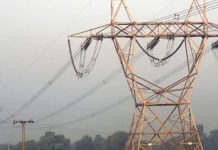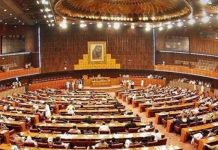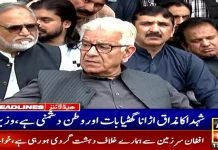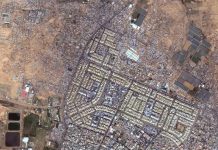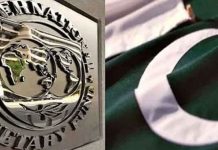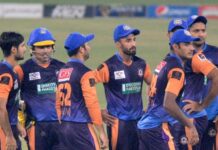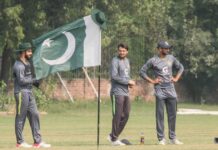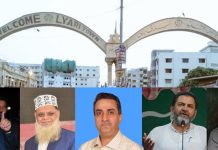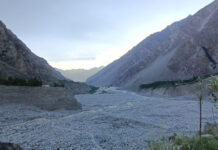Prime Minister Imran Khan rightly singled out India at the United Nations General Assembly session for its state-sponsored Islamophobia instigated by Hindu-supremacist forces.
The current ruling party of India, Bhartiya Janta Party (BJP), was founded as a political party in 1980, but all its auxiliary organizations have been known for their extremist agenda.
The core concept of this Hindu-supremacist ideology is that India is a Hindu nation. The idea was coined by its founder Vinayak Damodar Savarkar in 1923 when he wrote: “A Hindu means a person who regards this land of Bharatvarsha (Indian sub-continent) from the Indus to the seas as his fatherland (pitribhumi) as well as his holy land (punyabhumi).”
This definition of a Hindu, followed by Hindu fundamentalists, submerges three of India’s religious minorities—Buddhists, Sikhs and Jains into Hinduism, as India is the birthplace of these three religions and considered their father land and holy land.
But as the holy lands of the Abrahamic faiths (Muslims, Christians, and Jews) are located outside India therefore Hindu extremists believe that the followers of these religions should either be excluded from Indian society or converted to Hinduism.
Indian constitution is based on secular nationalism. But Hindu radical organizations see Hindus as the prime possessors of the Indian nation and believe that minorities should accept the Hindu dominance. RSS is the most significant of amongst these organizations.
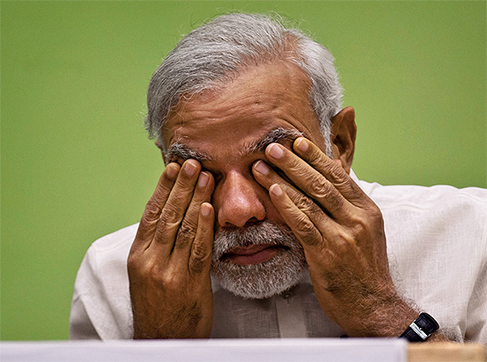
Formed in 1925, the RSS is the conceptual and institutional foundation of Hindu radicalism. The RSS does not nominate any contestants for elections, but it supports the campaign for BJP candidates, as it did for Indian Prime Minister Narendra Modi during elections. Modi and many other BJP leaders were trained by the RSS before their rise to political offices.
The BJP has affiliates like the RSS, Vishwa Hindu Parishad (VHP, World Council of Hindus) or the youth brigade Bajrang Dal (veneration of the monkey-god). The RSS and BJP activists demolished the historic Babri Mosque at Ayodhya on December 6, 1992.
BJP was the ruling party of the state (Utter Pradesh) where incident took place, while Congress was ruling the Union of India.
Following the demolition of the historic mosque, Hindu-Muslims riots erupted in various parts of India. Only in the city of Bombay, Over 2000 Muslims were killed, 1,829 injured and 165 gone missing.
The obliteration of Babri Masjid helped BJP and RSS to evolve from being a small political party to an indomitable political power which now possesses the largest ever majority in the Indian parliament.
In 2019, Supreme Court of India gave the contested land to a government-formed trust – which planned the Ram Mandir formation. On 5 August 2020 in middle of COVID-19 pandemic Indian Prime Minister Narendra Modi inaugurated the controversial construction of Ram Mandir at the site of Babri Masjid. A move which is described as milestone by Hindu supremacists.
In March 2002, the worst massacre of the Muslims took place in Gujarat. The well-planned massacre led to the killing of over 2000 helpless Muslims.
BJP was heading the India’s ruling coalition as well as ruling the State of Gujarat with Modi as its chief Minister.
The Concerned Citizens Tribunal chaired by former Supreme Court judge V R Krishna concluded that Gujarat Chief Minister Narendra Modi, his cabinet colleagues and organisations like the BJP, RSS, VHP and the Bajrang Dal meticulously planned and executed the Gujarat Massacre of the Muslims.
The tribunal heard that Modi cabinet members including Home Minister Gordhan Jhadafiya, Health Minister Ashok Bhatt, revenue minister Haren Pandya (who later fell out with Modi and had to resign), Finance Minister Nitin Patel, Urban Development Minister I K Jadeja, Food and Civil Supplies Minister Bharat Barot led mobs to kill Muslims and burn Muslim property. However, Modi got a clean chit in the matter through the report of Special Investigation Team appointed by Supreme Court of India.
Implementing BJP’s electoral campaign promise of 2019, in the late hours of December 10, 2019 the lower house of Indian parliament (Lok Sabha) passed the Citizenship (Amendment) Act (CAA). Just two days later, the controversial piece of legislation passed by the upper house of Indian parliament ( Rajya Sabha ) and, then it received a very hasty Presidential assent from President of India Ram Nath Kovind, and became the law.
The hastily passed controversial law essentially violates Articles 14 and 15 of the Indian constitution as Article 14 guarantees equal protection for all, and Article 15 prevents discrimination based on religion.
In 2019, the Indian Minister for Home Affairs revealed on several occasions that consequent to CAA a National Registry of Citizens (NRC) would be established. Over 172 million Muslims of India feel their right of Indian Citizenship is now under direct threat.

The fear is that existing Muslim citizens of India who will be unable to produce documents of Indian ancestry will be disenfranchised.
The fears of the Indian Muslim population have mainly arisen from implementation of similar NRC process in Indian state of Assam. In Assam, Muslims who have settled in state from decades and generations, have had their citizenship questioned and challenged by local authorities. A majority of them are being excluded from the National Register of Citizens and being sent to detention camps and effectively rendered stateless. Indian Home Minister has on various occasion termed such citizens of India as ‘infiltrators’. It is feared that through NRC the Assam model of citizenship will be implemented in the rest of India which will result into statelessness of a large number of Muslim community, even if they were born in India and have lived in the country for decades, as have their ancestors.
The cancellation of citizenship can contribute to genocide.
BJP government revoked the article 370 of Indian Constitution.
The revocation has not only deprived international disputed territory of Jammu and Kashmir (J&K) from its traditional autonomy but also separated territory of Ladakh from J&K and established it as a Union Territory controlled by the BJP Central government.
Since the revocation of article 370 in August 2019; the BJP Government has implemented 37 laws of Indian central government in Kashmir. A new controversial domicile law has also been introduced. The law which aimed to change Kashmir’s demography.
Hindu supremacists left over 50 Muslims dead in Delhi in February 2020. Amidst COVID19 pandemic, Muslims in India have been assaulted, denied medical care and subjected to boycotts — all in the name of COVID19.
It is clear that Hindu extremist BJP Government is pursuing an agenda of Hindu supremacy, moving India away from its secular foundations and increasing concerns that Muslims will be regarded as second-class citizens.


